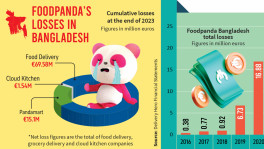Authoritarians are exploiting the coronavirus, Democracies must not follow suit
Democracies are far more effective at combating national crises, but that hasn’t stopped despots across the world from trying to tighten their grip

The world is facing an unprecedented and dangerous crisis, and the coronavirus pandemic shows no signs of abating. The seemingly endless cascade of dire headlines has overwhelmed citizens globally, triggering inherent survival mechanisms and leading people to focus on the health and safety of those closest to us. Into the void created by this uncertainty—in which fear has often trumped reason—stride the world's authoritarian leaders.
Despotic officials on both ends of the political spectrum have grown stronger since the outbreak of the pandemic as the world's population clamors for quick, decisive leadership.
It is thus unsurprising that over the past several weeks the world has witnessed an unmistakable authoritarian surge, in which leaders around the globe have manipulated the coronavirus threat to consolidate their own political power and to run roughshod over democracy and human rights.
And despite the growing evidence that democracies—and in turn, democratic leaders—respond better to public health crises, there is a growing tolerance and troubling acceptance of anti-democratic responses.
Despotic officials on both ends of the political spectrum have grown stronger since the outbreak of the pandemic.
Perhaps the most illustrative example to date is Hungary, where the country suddenly transformed an already struggling democracy into a full-blown dictatorship. Despite courageous protests from local human rights groups, the country's parliament voted to give Prime Minister Viktor Orban the power to rule by decree for as long as the crisis lasts.
With both parliament and popular elections now effectively suspended, Orban faces few, if any, checks on his already outsized authority. Orban himself, of course, claims that the changes were necessary to limit the spread of the coronavirus, but they go well beyond the successful measures already enacted in neighboring European countries.
This latest, truly global assault on liberal democracy is especially dire because the avenues for organization, protest, and civic resistance—all key tactics in the activist's toolkit—have already been curtailed (and in some cases criminalized) by the lockdown and quarantine measures.
Acts of civil disobedience in particular are now banned, replaced by a muzzled press and strictly imposed curfews. Making matters worse, established Western democracies—those that have inconsistently but importantly stood up for beleaguered citizens living under repressive rule—have done little to object because they, too, are undertaking similar actions to deal with the coronavirus at home.
To be sure, civil liberties around the world have already been severely weakened by sustained attacks over the past few years, but the pandemic provides ample opportunity to accelerate an evident trend toward authoritarianism.
To date, attempts to manipulate the coronavirus threat for authoritarian ends have fallen into three broad categories.
First are the emboldened dictators, those leaders who were already leading characteristically authoritarian regimes but who are now free to further advance their anti-democratic machinations. In addition to Hungary, similar processes of authoritarian consolidation are underway in Russia and Rwanda.
Russian President Vladimir Putin is seizing the opportunity to expand the Kremlin's already formidable apparatus of state repression in the form of thousands of facial recognition cameras that will enable the police to identify and target people participating in street demonstrations long after the coronavirus inevitably recedes.
Rwandan President Paul Kagame has carefully guided the country into a one-party dictatorship since taking power in 2000 and is now deploying security forces and soldiers across the country to enforce Africa's first nationwide lockdown.
Already, according to credible reports, several citizens have been shot dead for allegedly breaking curfew. Instances like these are depressingly common in a country where brave activists, journalists, and opposition leaders have been routinely killed with impunity—apparently by Kagame's own security forces.
The second major category are the opportunistic autocrats, those oppressors who had already moved toward authoritarianism but were facing mounting domestic opposition and have since used the pandemic to violently stifle their activities.
Uganda is a glaring example. President Yoweri Museveni—who has been in power over the course of six successive U.S. presidential administrations—moved to ban opposition rallies well before the country had confirmed a single case of coronavirus.
The pandemic provides ample opportunity to accelerate an evident trend toward authoritarianism.
Museveni is concerned about the growing support for opposition candidates such as the popular musician-turned-lawmaker Bobi Wine of the People Power movement, who has spearheaded his own pandemic response by educating Ugandans on how to combat the virus through popular music.
A prominent People Power colleague, Member of Parliament Francis Zaake—already a frequent target of the Museveni regime—was arrested again last week and reportedly tortured, after being charged with attempted murder for ostensibly ignoring social distancing guidelines while handing out food to his constituents. Those close to Museveni are also sending out feelers to test whether they can postpone elections scheduled for next year.
Meanwhile, Guinea's burgeoning strongman, President Alpha Condé, plowed forward with a highly controversial referendum and local elections on March 22, the results of which will allow him to further extend his 10-year rule, which has turned increasingly violent.
Voter turnout was understandably low, and an internet shutdown compounded an already volatile environment. Nationwide opposition to Condé's plans was repressed with excessive force, with dozens of Guineans losing their lives on the streets, including on the day of the referendum itself.
Beyond the clear public health risks involved, election conditions were inauspicious, as election observers refused to participate or otherwise lend their stamp of legitimacy.
Finally, there is a third category: the clueless authoritarians who appear to have little understanding of the inherent threats to public health that the coronavirus poses, with likely disastrous consequences for their populations and global health writ large.


 Keep updated, follow The Business Standard's Google news channel
Keep updated, follow The Business Standard's Google news channel
















